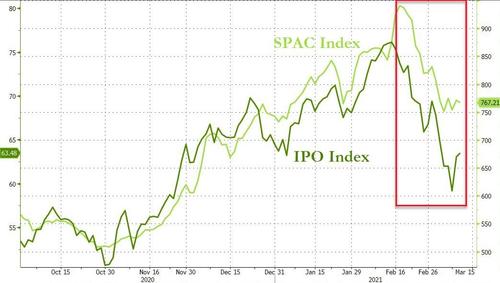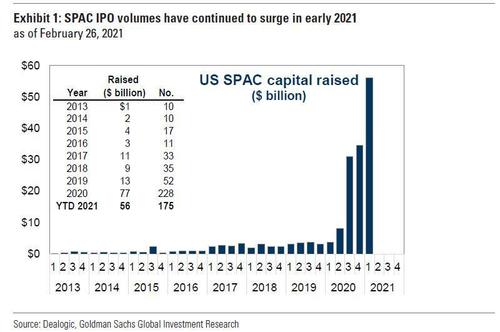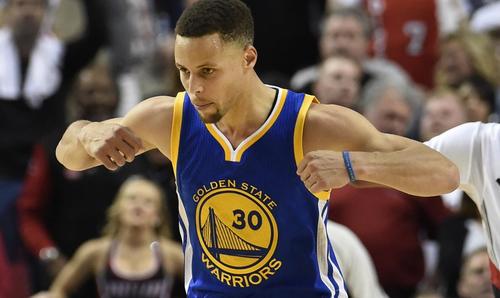Current Affairs
Despite the global hardships of the COVID-19 pandemic, the world’s ultra high net worth (UHNW) population increased by 2.4% in 2020, reaching an all-time high of 521,653.
In this chart, we’ve used data from The Wealth Report 2021 by Knight Frank to list the 20 countries with the most UHNW individuals.

How might the stock markets respond to the historic bill? One way to find out is to study the past.
Financial analytics firm Toggle AI looked at the performance of US stocks after 5 other historic stimulus bills:
- 2001: Economic Growth and Tax Relief Reconciliation Act
- 2008: Economic Stimulus Act
- 2009: American Recovery and Reinvestment Act
- 2017: Tax Cut and Jobs Act
- 2020: CARES Act
Its analysis shows that Consumer Discretionary is the top-performing S&P 500 sector 3 months after these bills are signed into law.
When the cheddar hits, investors look to anticipate significant consumer spending and have historically targeted names like Nike, Starbucks, Home Depot, Target, and McDonald’s (’cause nothing says “pent-up demand” like people crushing Big Macs).
Which sector has historically been the loser? The boring old Utilities sector, with an average return of -3.3% over this span

There are billionaires, and there are “centibillionaires,” or individuals who are worth $100 billion or more. For a long time, the “centibillionaire” club was exclusively comprised of just three men: Jeff Bezos, Bill Gates and French fashion mogul Bernard Arnault. The elite of the elite, men with incomprehensible wealth.
Last year, amid a global pandemic that seemed to only enrichen billionaires, Tesla and SpaceX CEO Elon Musk became the fourth member of the club thanks to Tesla’s wild stock gain. And now, two other titans of being rich have also recently achieved the centibillionaire status: Berkshire Hathaway chairman Warren Buffett and Facebook CEO Mark Zuckerberg.
According to Bloomberg’s Billionaires Index, Buffett’s net worth officially surpassed $100 billion on Thursday for the first time. In 2021 so far, the 90-year-old investor has added $13 billion to his fortune as shares of his investment conglomerate Berkshire Hathaway soared, making him sixth richest person on Earth.

When we look back at the COVID-19 era, there’s little doubt that the SPAC boom that dominated financial headlines last year will be remembered as a shining example of what happens when the Fed steps up to monetize trillions of dollars in federal government stimulus, while millions of scared and desperate Americans scramble to parlay one free paycheck into two.
A few days ago, Chamath Palihapitiya, “the King of SPACs” whose leadership in the Virgin Galactic deal arguably makes him one of the progenitors of the contemporary bubble, warned that there will be even more pain ahead for SPAC investors, especially if bond yields continue to rise (which, as we have explained, they likely will, especially if Senators Sherrod Brown and Elizabeth Warren get their way).
“The SPAC market has taken a real beating…if you have one or two more months of this where all of a sudden bonds look better…you’ll have a bunch of busted IPOs or mergers.”
To borrow a phrase form Palihapitiya, SPACs “took a beating” during the Nasdaq drawdown that started last month.
Yet, as issuance volume explodes…
…the SEC has decided to issue a rare public alert about the sector, warning investors to think twice before investing their hard-earned money in shares of a SPAC, especially when celebrity pitchmen or women are attached to the deal. The notice cautions investors not to make investment decisions “solely based on celebrity involvement”.
Most importantly, the notice explained to readers how the economic interests of SPAC sponsors sometimes differ from those of their customers, as sponsors will typically get in on deals at more favorable terms.
The agency also offered readers a walk-through of how SPACs work, including explaining what a “warrant” is, the standard $10 debut trading price, and the typical two-year timeframe (SPACs usually promise investors they will close a deal within 2 years).
Read the full notice below:
The SEC’s Office of Investor Education and Advocacy (OIEA) cautions investors not to make investment decisions related to SPACs based solely on celebrity involvement.
Celebrities, from movie stars to professional athletes, can be found on TV, radio, and social media endorsing a wide variety of products and services. Sometimes they are even involved in investment opportunities such as special purpose acquisition companies, or SPACs, as sponsors or investors. Those celebrities may even be well-known professional investors.
However, celebrity involvement in a SPAC does not mean that the investment in a particular SPAC or SPACs generally is appropriate for all investors. Celebrities, like anyone else, can be lured into participating in a risky investment or may be better able to sustain the risk of loss. It is never a good idea to invest in a SPAC just because someone famous sponsors or invests in it or says it is a good investment.
SPACs have become a popular vehicle for transitioning a private company to a publicly traded one. A SPAC is a blank check company with no operations that offers securities for cash through an initial public offering (IPO). SPACs then have a specified period of time—typically two years—to identify and merge with a private operating company. This business combination is often used as an alternative means of taking the acquired company public, rather than through a traditional IPO.
Special purpose acquisition companies (SPACs). To learn more about SPACs and what to consider before investing in a SPAC, see our Investor Bulletin about what you need to know.
However, SPAC transactions differ from traditional IPOs and have distinct risks associated with them. For example, sponsors may have conflicts of interest so their economic interests in the SPAC may differ from shareholders. Investors should carefully consider these risks. In addition, while SPACs often are structured similarly, each SPAC may have its own unique features, and it is important for investors to understand the specific features of any SPAC under consideration.
Differing economic interests. SPAC sponsors generally acquire equity in the SPAC at more favorable terms than investors in the IPO or subsequent investors on the open market. As a result, the sponsors will benefit more than investors from the SPAC’s completion of a business combination and may have an incentive to complete a transaction on terms that may be less favorable to you. To learn more, see our Investor Bulletin.
Even if a celebrity is involved in a SPAC, investing in one may not be a good idea for you. Before investing, always do your research, including these three steps:
- Check out the background, including registration or license status, of anyone recommending a SPAC, using the search tool on Investor.gov;
- Learn about the SPAC sponsors’ backgrounds, experience, and financial incentives, how the SPAC is structured, the securities that are being offered, the risks associated with an investment in the SPAC, plans for a business combination, and other shareholder rights by carefully reading any prospectus which may be available through the SEC’s EDGAR database; and
- Consider the investment’s potential costs, risks, and benefits in light of your own investment goals, risk tolerance, investment horizon, net worth, existing investments and assets, debt, and tax considerations.
Never invest in a SPAC based solely on a celebrity’s involvement or based solely on other information you receive through social media, investment newsletters, online advertisements, email, investment research websites, internet chat rooms, direct mail, newspapers, magazines, television, or radio.
* * *
Is this too little, too late for the SEC? After all, the SPAC craze has already reached a surreal, permanently high plateau where 5 new SPACs price ever single day so far in 2021, and that YTD, 144 SPACs have gone public raising a total of $44 billion.

If not for the minority government, many wealthy Canadians would be facing a world of hurt
We are now a few months into 2021 and markets, for the most part, have been performing quite well as they look beyond COVID-19 lockdowns to the looming economic recovery. There is one issue, however, that is still keeping us awake at night due to its potential impact on Canadian investors, and that is the question of tax hikes.
The federal government has racked up a huge amount of new debt during the pandemic: Its deficit spending leads the G7, and the country’s total debt-to-GDP ratio is now worse than that of Greece. We think that if not for Prime Minister Justin Trudeau’s government being held to a minority, many wealthy Canadians would be facing a world of hurt, as the temptation to raise taxes would be significant.
And the political dynamic in the country could be in for a shakeup.
Just last week it was reported that Elections Canada had ordered 240,000 see-through masks and 19 million single-use pencils — 56 times the usual number of writing implements — possibly in preparation for a pandemic vote. At the same time, a House of Commons committee has suggested chief electoral officer Stéphane Perrault consider allowing telephone voting, something which has never before been permitted in a Federal election.
While it is too soon to say for sure whether we will be heading to the polls, it can never hurt to have a plan in place to ensure your affairs are being managed in as tax-efficient way as possible. Even if nothing happens in the near-term at least you will have identified some areas for immediate improvement in your financial planning.
For those wondering where to start, try to answer two important questions
Remember that return projections are only part of the puzzle, and shouldn’t be the main driving force behind a proper wealth plan.
A review of investments should only come once your goals are derived and good old-fashioned tax and wealth-transfer planning are integrated.
For those wondering where to start, try to answer two important questions.
First, how are you living currently both from a lifestyle and value perspective and how do you expect this to change in retirement? This can include time with family, how often one wants to travel, adding a vacation home, cutting back on work hours or moving to a single-income earner, a change in careers, going back to school and/or taking an early retirement.
The second question, especially for those already in retirement, is how much do you want to leave behind and who do you want to leave it to? There are three options when it comes to this — family, philanthropy or the CRA — and few if any we’ve come across (especially here in Alberta) have a desire to leave it to the Federal government.















